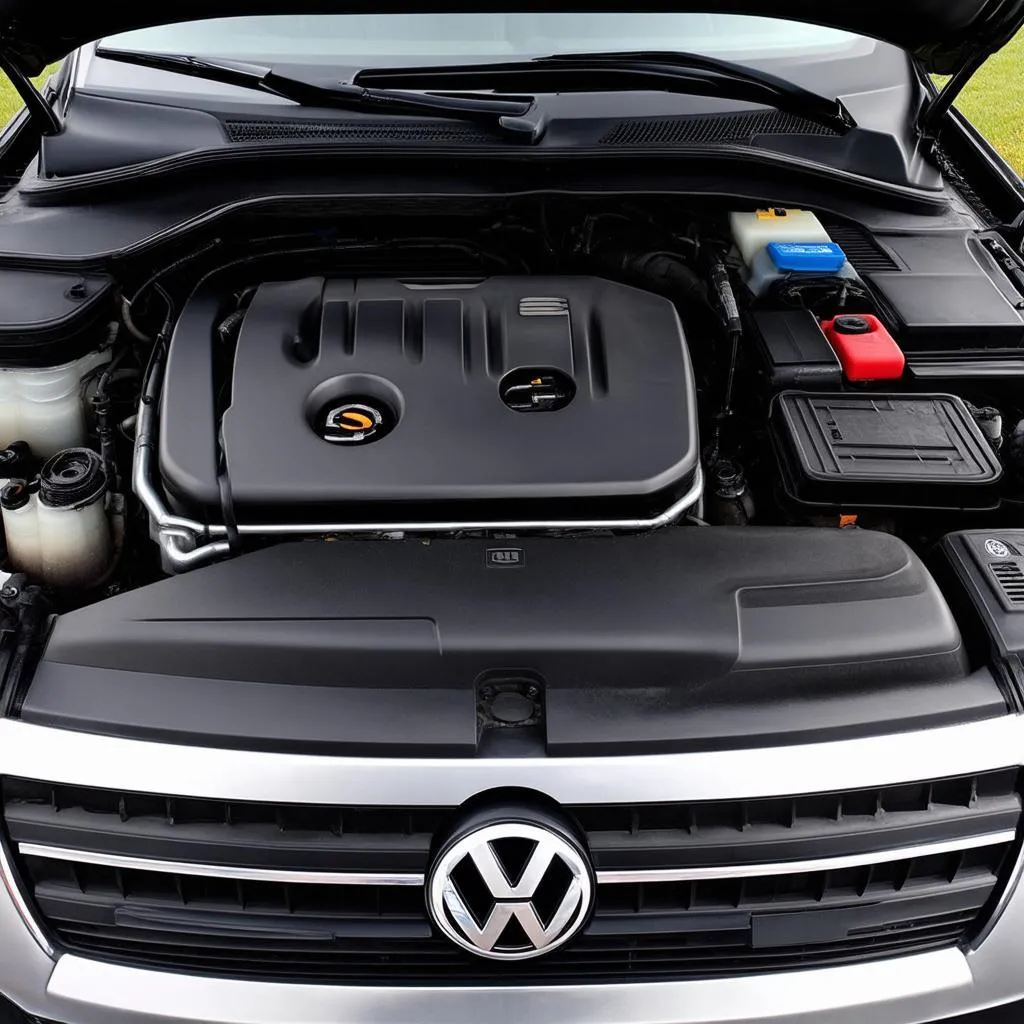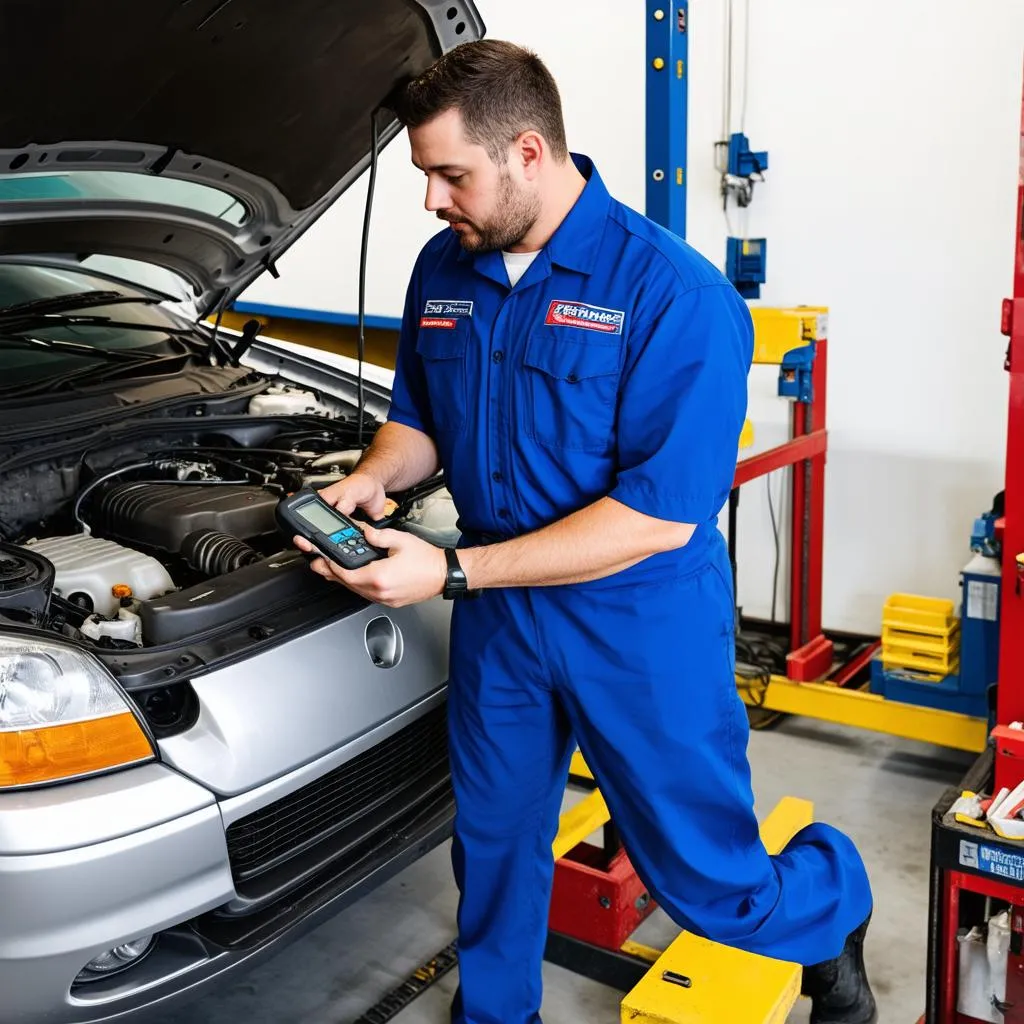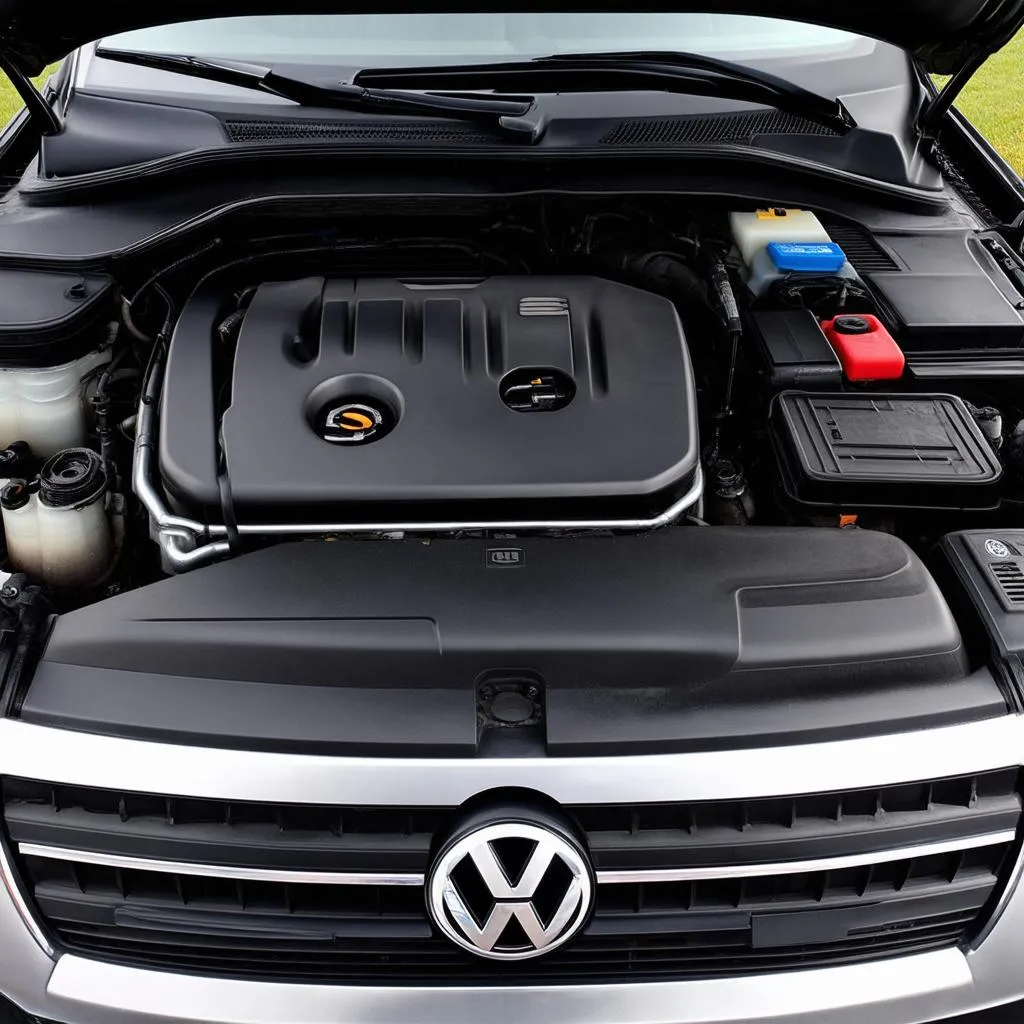So, your trusty 2010 Passat threw a P0302 code at you? Don’t panic! While seeing that dreaded “Check Engine” light can feel like a punch to the gut (especially right before a road trip), understanding what it means can empower you to tackle the issue head-on.
This article dives deep into the notorious P0302 OBD-II code, specifically how it relates to your 2010 Volkswagen Passat. We’ll decode the jargon, explore common causes, and arm you with the knowledge to conquer this automotive challenge like a true DIY mechanic.
Understanding the Cryptic P0302 Code
Imagine this: you’re cruising down the Pacific Coast Highway, California sun warming your face, when suddenly, your engine sputters. A quick check with your trusty OBD-II scanner reveals the dreaded P0302 code. What does it mean?
In simple terms, P0302 indicates a misfire in cylinder number 2 of your engine. A misfire occurs when the air-fuel mixture in a cylinder fails to ignite properly. Think of it as your engine skipping a beat, leading to a rough idle, reduced power, and potentially increased emissions.
Why is My 2010 Passat Throwing a P0302 Code?
Multiple culprits could be causing that pesky P0302 code in your 2010 Passat. Let’s investigate some common suspects:
1. Worn Spark Plugs: Imagine trying to start a campfire with a damp match. Frustrating, right? Worn spark plugs struggle to create a strong enough spark to ignite the air-fuel mixture, leading to misfires.
2. Faulty Ignition Coils: Ignition coils are like the power boosters for your spark plugs. If a coil fails, it can’t provide enough juice to the spark plug, resulting in a misfire.
3. Vacuum Leaks: Picture a straw with a tiny hole. Vacuum leaks disrupt the carefully calibrated air-fuel ratio needed for optimal combustion, potentially triggering that P0302 code.
4. Fuel Injector Problems: Just like a clogged artery can hinder blood flow, a malfunctioning fuel injector disrupts the fuel delivery to a cylinder, leading to an incomplete burn and, you guessed it, a misfire.
5. Compression Issues: Low compression in a cylinder (often caused by worn piston rings or valves) can prevent the air-fuel mixture from igniting properly, resulting in a misfire.
Don’t Ignore the Warning Signs!
Ignoring a P0302 code is like ignoring a flashing “Exit” sign in a smoky room – not a good idea. If left unaddressed, a cylinder misfire can lead to:
- Catalytic Converter Damage: The catalytic converter is a crucial component of your Passat’s emission control system. Unburnt fuel from misfires can damage this expensive part.
- Reduced Fuel Economy: When your engine isn’t firing on all cylinders, it works harder, guzzling more fuel and impacting your wallet.
- Engine Damage: In severe cases, prolonged misfires can cause significant internal engine damage, leading to costly repairs or even engine replacement.
Taking Action: Resolving the P0302 Code
While the P0302 code might seem intimidating, tackling it head-on can save you headaches and expensive repairs down the road. Here’s a step-by-step approach:
-
Start with the Basics: Before diving into complex repairs, check the simple things first. Inspect and replace worn spark plugs (especially if you can’t recall the last time you changed them). Consider replacing the ignition coil for cylinder 2 as well, as these components often wear at similar rates.
-
Check for Vacuum Leaks: Carefully inspect all vacuum hoses connected to your engine for cracks, loose connections, or signs of wear. A visual inspection can often pinpoint these culprits.
-
Fuel Injector Inspection: If the spark plugs and vacuum system check out, it’s time to focus on the fuel injector for cylinder 2. You can use a multimeter to test its resistance or have a mechanic perform a more thorough inspection.
-
Compression Test: If the previous steps don’t reveal the culprit, a compression test can determine if low compression in cylinder 2 is causing the misfire. This test requires specialized tools and is best left to a qualified mechanic.
-
Consult a Professional: While DIY repairs can be rewarding, don’t hesitate to seek professional help if you encounter complex issues or are unsure about any step of the diagnostic process.
 engine bay
engine bay
Common Questions About the P0302 Code
Q: Can I still drive my car with a P0302 code?
A: While it’s technically possible to drive a short distance with a P0302 code, it’s highly discouraged. Driving with a misfire can lead to further engine damage and potentially leave you stranded.
Q: How much does it cost to fix a P0302 code?
A: The cost of repairs depends on the underlying cause. Replacing spark plugs is a relatively inexpensive fix, while addressing issues like fuel injector problems or compression issues can be more expensive.
Q: Can a bad catalytic converter cause a P0302 code?
A: While a faulty catalytic converter can cause other engine performance issues, it’s unlikely to directly trigger a P0302 code. However, a misfire can damage the catalytic converter over time.
Other Related Issues to Watch Out For
While the P0302 code specifically points to cylinder 2, it’s wise to keep an eye out for similar codes that might indicate issues with other cylinders:
- P0300: Random/Multiple Cylinder Misfire Detected
- P0301: Cylinder 1 Misfire Detected
- P0303: Cylinder 3 Misfire Detected
- P0304: Cylinder 4 Misfire Detected
Experiencing these codes? The diagnostic approach is similar to what we’ve discussed for the P0302 code.
 car repair
car repair
Need Expert Help with Your Volkswagen?
We understand that dealing with car troubles can be stressful. If you’re facing the dreaded P0302 code or any other automotive challenges, our team of expert mechanics at Tech Car USA is here to help.
Contact us on Whatsapp at +84767531508 for expert advice, diagnostics, and repairs. We specialize in European car repairs, including Volkswagen models like your Passat. Don’t let a misfire rain on your parade—contact us today, and let’s get your car back in top shape!

